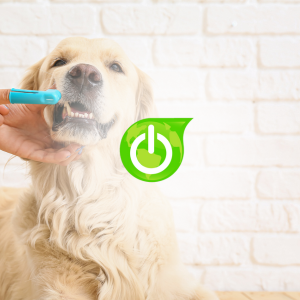 Think of cyber hygiene as the online version of brushing your teeth—essential and routine care provides the maximum protection for your digital infrastructure. Just as daily habits keep your body healthy, good cyber practices shield you from hackers and digital threats. Let’s explore practical ways to enhance your online safety in 2025.
Think of cyber hygiene as the online version of brushing your teeth—essential and routine care provides the maximum protection for your digital infrastructure. Just as daily habits keep your body healthy, good cyber practices shield you from hackers and digital threats. Let’s explore practical ways to enhance your online safety in 2025.
What is Cyber Hygiene?
Cyber hygiene refers to the practices that keep your digital devices and information secure. Just like washing your hands prevents germs, strong cyber habits prevent viruses, malware, and unauthorized access.
Why is Cyber Hygiene Important?
Cybercriminals are constantly evolving their tactics to steal your data or disrupt your devices. Maintaining good cyber hygiene helps:
- Protect your privacy
- Keep devices running smoothly
- Avoid costly downtime and data breaches
Steps to Ensure Good Cyber Hygiene
*Strengthen Your Passwords
Passwords are the keys to your online world. Just as you would not keep your door open when you leave for the workday or vacation, you should not keep your online door open to potential bad actors by having weak passwords. Here’s how to ensure you have strong, secure passwords:
- Use Long Passphrases: A phrase like “I enjoy hiking in the mountains!” is memorable and secure.
- Mix Characters: Add symbols, numbers, and uppercase letters. For instance, “I<3HikingInM0untains!” is even stronger.
- Avoid Reusing Passwords or Passphrases: Use a unique password for every account to prevent a single breach from compromising all your logins.
*Keep Software Updated
Software updates can be compared to performing maintenance for your vehicles such as oil changes and tire rotations. Just like vehicle maintenance, software updates for your devices ensure the best possible security exists, patching vulnerabilities and providing new features including:
- Fixing Security Flaws: Updates close loopholes hackers exploit.
- Enabling Auto-Updates: Set it and forget it to stay protected.
- Improving Performance: Enjoy faster and more reliable software.
*Two-Factor Authentication (2FA): Double the Protection
Think of 2FA as adding a second lock to your digital door. It combines something you know (like your password) with something you have (like a code sent to your phone).
- Why Use It? If someone steals your password, they still cannot access your account.
- Where to Enable It: Prioritize 2FA for critical accounts such as email, banking, and social media.
*Stay Safe on Public Wi-Fi
Public Wi-Fi is convenient but risky, just like talking about private matters in a crowded room. Here’s how to protect yourself:
- Use a VPN: A Virtual Private Network encrypts your connection, keeping your data private.
- Avoid Sensitive Transactions: Wait until you’re on a secure network to shop or bank online.
- Turn Off Auto-Connect: Prevent your device from connecting to unsafe networks automatically.
*Recognize and Avoiding Phishing Scams
Phishing attacks are digital traps designed to steal your information. Stay vigilant by:
- Inspecting the Sender: Verify email addresses carefully; scammers often mimic legitimate ones.
- Avoiding Suspicious Links: Hover over links to see where they lead before clicking.
- Ignoring Urgent Requests: Scammers often create a false sense of urgency to trick you.
*Back Up Your Data
Backing up your data ensures you’re prepared for accidents or attacks like ransomware.
- Follow the 3-2-1 Rule: Keep three copies of your data, on two different media, with one stored offsite.
- Recover Quickly: Backups allow you to bounce back from lost or corrupted files quickly.
*Review Your Privacy Settings
Your privacy settings control who can see your information.
- Schedule Reviews: Set reminders to update your privacy settings every few months.
- Close Old Accounts: Deactivate accounts you no longer use.
- Limit Sharing: Only share the information necessary for each platform.
*Teach Your Family Cyber Safety
Good cyber hygiene is just as important at home as it is the office. Make it a priority for family by:
- Using Fun Learning Tools: Games and stories make lessons memorable.
- Modeling Good Behavior: Demonstrate safe habits like strong passwords and cautious online interactions.
- Discuss Online Experiences: Open communication ensures everyone stays informed and protected.
Take Control of Your Online Safety
In 2025, good cyber hygiene is your best defense against digital threats. Strengthen your passwords, keep software updated, and use tools like 2FA and VPNs. Regularly back up your data, review your privacy settings, and teach your family safe practices.
Want to learn more about staying safe online? Contact us today for tailored advice and solutions. Together, we’ll make your online experience secure and hassle-free!
